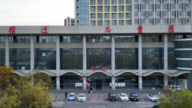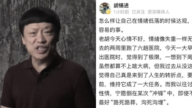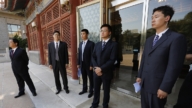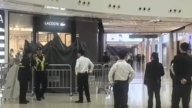【新唐人2012年1月5日讯】中国留学生返回国内工作被称作“海归”者,由于他们在民主国家生活和工作过,对民主的运作有过亲身经历,因此,他们对大陆争取民主的作法发挥了作用,这让中共非常担心。英国学者也认为,“海归”者会对中共一党专政制度构成威胁。
据大陆人社部统计数据显示,截至2010年年底,中国留学回国人员总数已达63.22万人。他们回国后主要在中国高科技领域、大学和智囊机构发挥重要作用,许多人甚至在中共党内身居要职。
最近,英国《经济学人》杂志财经编辑罗伯特•格斯特在《泰晤士报》上撰文说,大批在西方的海外中国人和留学生返回中国,这些“海归”在稳步改变中国的一党专政制度。
文章指出,中共依赖海外华人,充当与外国市场之间的桥梁,但是却对他们有所担心。因为,随着中共权力不受制约带来的问题越来越多,腐败和民怨越来越多的时候,党内的自由派就会越来越强烈的要求民主选举,这对中共的一党制度构成了威胁。
“中国社会民主党”中央委员会主持人刘因全:“中共很惧怕他们这一些人把海外的这一些先进的东西带回到中国去,冲击中共的一党专制。但是中共又没有办法,它又想吸收使用西方的先进的科学技术,又不想让西方的先进思想冲击中共的政权,这是一个矛盾体。”
刘因全认为,这些“海归”每个人都是一粒种子,几十万人融合在一起,会改变中国现有的专制制度、改变中国党文化的知识结构。
刘因全:“因为这些海归他们在海外的时候,都学习到了好多知识,他有了这些以后呢?他又把自己在西方所见、所闻、所思、所想进行自己的归纳、总结,形成自己的看法,当这些人回到了中国以后,他们一定要通过不同的方式,把自己的这些看法来传播开来。”
去年,遭中共软禁和暴力对待,轰动世界的知名艺术家艾未未,1981年到1993年,约12年时间居住在美国纽约,并曾就读纽约帕森设计学院。1993年4月,艾未未父亲艾青患病,他返回北京照顾,并放弃了美国居民身份。
回国后,艾未未除从事艺术创作,还关注维权活动,并对大陆多个涉嫌政治腐败而引发的事故进行调查,包括毒奶粉事件;汶川大地震中因当局兴建教室偷工减料倒塌,导致大量学生死亡事故,以及声援被迫害的维权人士等。
上海冯正虎是位经济学家及知名人权运动人士,1989年天安门事件之后,他公开批评中共的镇压行动,而遭到当局调查。1991年他到日本留学。1998年9月,冯正虎返回中国创办公司,之后,一直来往中日之间。过程中,冯正虎也一直从事维权活动,也多次遭到中共的打压。
去年,11月25号上午,他应上海朋友王扣玛之邀到家中做客,再次被警察以“赌博”名义带走 。
冯正虎:“关于我,总想去报答自己的祖国,谁都回到自己的国家,来推动这个国家往民主自由、法制人权这个方向发展。在这个过程当中,确实我们也做出了很大的牺牲。包括我回来,一直是遭到被强迫失踪、抄家等等各种打压都有的。当然这种打压也不能制止我们为这个中国向前推动。”
刘因全也对“海归回国促民主”抱持乐观态度,他希望中国尽快走上民主轨道。
新唐人记者唐睿、王明宇采访报导。
Returnees Push for Democracy
Returnees, or “Sea Returnees" refer to Chinese who have
studied in the West and return to mainland China.
Their personal experience through life and work in the West
play a role in pushing democratic movement in China a great concern to the CCP.
The British also believe returnees impose threats to
the CCP one-party dictatorship.
According to the Chinese ministry of human resources and
social security,
as of the end of 2010, there were a total of 632,200 returnees.
They mainly occupy important roles in high-tech fields, universities, think tanks, and even high ranking CCP positions.
Recently, the British Economist magazine global business
editor Robert Guest stated in “The Times" that,
“a huge diasporas and former students returning from the
west are steadily eroding the one-party state."
The article points out that the Chinese Communists rely on
overseas Chinese as networks to foreign markets
but also worry about these westernized Chinese.
As the Communists regime faces increasing problems
associated with unchecked power,
as well as elevated corruption and complaints,
the liberal group within the party would also raise their democracy demands, which threatens the one-party.
“Chinese Social Democratic Party" Central Committee Chair Liu Yinchuan: “The CCP is very much afraid of these people would bring those civilized things to China and
influence the one-party dictatorship of the CCP.
The CCP can’t control it.
They want advanced science and technology from the West,
and yet,
they don’t want the thoughts that would threaten
the CCP ideology. It is contradictory."
Liu Yinchuan believes that every returnee is a seed.
With tens of thousands of them, they will change the current
authoritarian regime and the structure of the party culture.
Liu Yinchuan: “These returnees have acquired a significant
amount of knowledge when they were overseas.
With that, they summarize, conclude and transform what they
have seen, heard, and thought into their own views.
Once they return to China, they would spread their ideas
through various means."
Ai Weiwei, the artist who was made popular due to
his house arrest and violent treatment by the CCP last year,
had lived in New York for about 12 years during 1981 and
1993 and once studied at Parsons the New School for Design.
He gave up his U.S. residency status and returned to Beijing
to look after his sick father Ai Qing in April of 1993.
After returning home, while conducting his art works,
Ai Weiwei also contributed to human rights activities and
investigation of several political corruption incidents such as
the tainted powdered milk, and
the collapse of shoddy classrooms during Sichuan earthquake
which led to a large number of students’deaths,
as well as publicly supported persecuted activists,
to name a few.
Shanghai Feng Zhenghu is a well-known economist and
human rights activist.
After the 1989 Tiananmen massacre, he has faced investigation
due to his public criticism of CCP’s crackdown.
He studied in Japan in 1991. In September 1998, Feng
Zhenghu returned to China and opened a company.
He’s been traveling back and forth between China and Japan.
Feng Zhenghu has engaged in human rights activities
throughout his journey and encountered repeated suppression by the CCP.
Last year on the morning of November 25th,
while as guest at a friend’s house in Shanghai,
he was taken away by police in the name of “gambling."
Feng Zhenghu : As for me, I always wanted to repay my country;
anyone would return to their country to push the country
toward the direction of democracy, freedom, law and human rights.
In this process, we really made a great sacrifice.
Including my coming back, I have always been subjected to a
variety of suppression such as forced disappearance and raids.
Of course, such suppression can not stop us from pushing
China’s forward movement.
Liu Yinchuan is also optimistic that “China’s sea returnees
will make democracy evolve."
He hopes that China will speed up on the democratic track.
NTD reporters Tang Rui and Wang Mingyu.



























